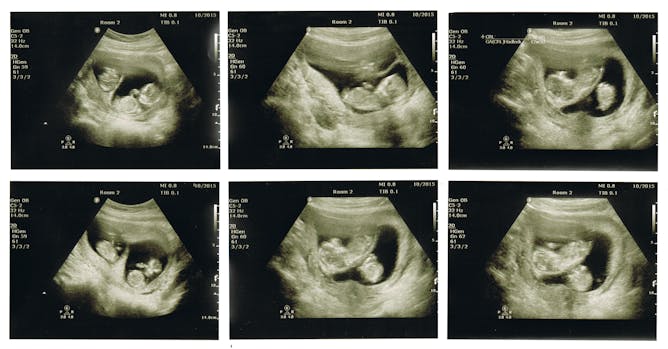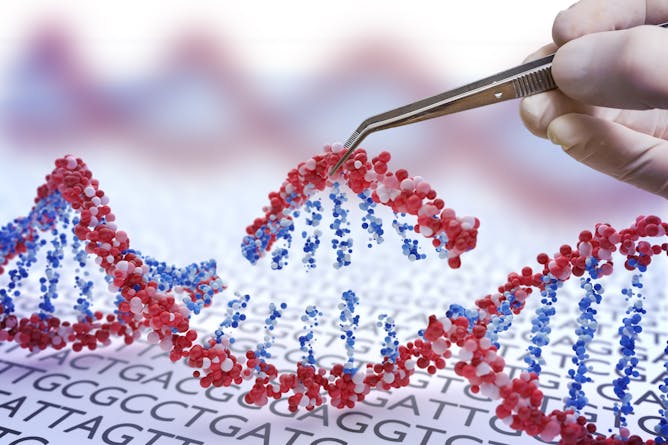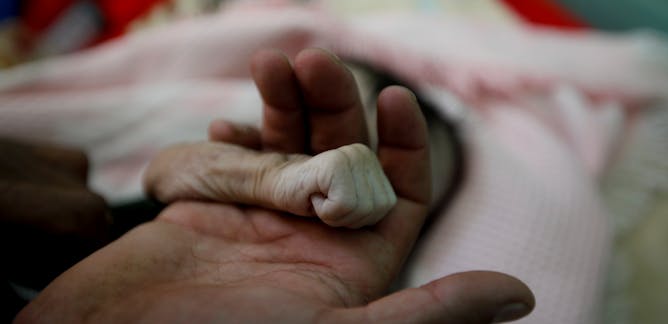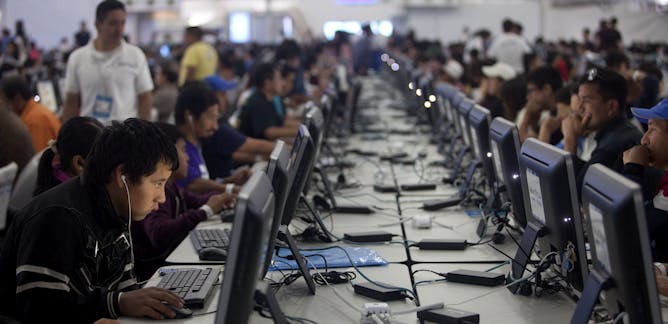|
Just as a global summit on gene editing starts in Hong Kong, world researchers seem dismayed about reports a Chinese scientist has edited human embryos using CRISPR technology – and that genetically-modified twin baby girls are now born as a result. Dimitri Perrin and Gaetan Burgio talk through what we know and don’t know about this development, and Joyce Harper says this technology is untested in humans, making the development premature, dangerous and irresponsible.
And NASA’s Insight Lander has arrived safely on Mars! Paulo de Souza writes it’s the latest step in humanity’s long fascination with the red planet.
|

Chinese scientist He Jiankui of Shenzhen claims he helped make the world’s first genetically edited babies.
from www.shutterstock.com
Dimitri Perrin, Queensland University of Technology; Gaetan Burgio, Australian National University
We don't know anything about the health of the baby girls who are reported to have been born. But it's clear scientists around the world are shocked.
|

Vchal/Shutterstock
Joyce Harper, UCL
A Chinese scientist claims to have edited human DNA to make us more resistant to HIV. Here's why that's not good news.
|

Signs of life on Mars? These are the tracks of NASA’s Curiosity rover exploring the Martian landscape.
NASA/JPL-Caltech/MSSS
Paulo de Souza, CSIRO
Mars has long captured our imagination, from claims of canals to Martian attacks and now our latest NASA exploration to look inside the red planet.
|
Politics + Society
|

Jeff Bachman, American University School of International Service
The Obama and Trump administrations have supported a military coalition that has inflicted profound and deadly damage on Yemen. A human rights scholar says the US is complicit in genocide.
| |

Jack J. Barry, University of Connecticut
Mexico made internet connectivity a constitutional right in 2013, but most poor people still aren't online. Research shows that internet access would give these residents more economic mobility.
|
|
|
Health + Medicine
|
-
Charles Shey Wiysonge, South African Medical Research Council
The leading causes of death in sub-Saharan Africa for adults 15 to 49 years were AIDS, tuberculosis, malaria, maternal disorders, and road injuries.
|
|
Science + Technology
|
-
Kieren Mitchell, University of Adelaide; Adrian Lister, Natural History Museum; Alan Cooper, University of Adelaide; Chris Turney, UNSW
The loss of the Siberian unicorn shows just how vulnerable some animals can be to environmental change that can impact on their food supply.
|
|